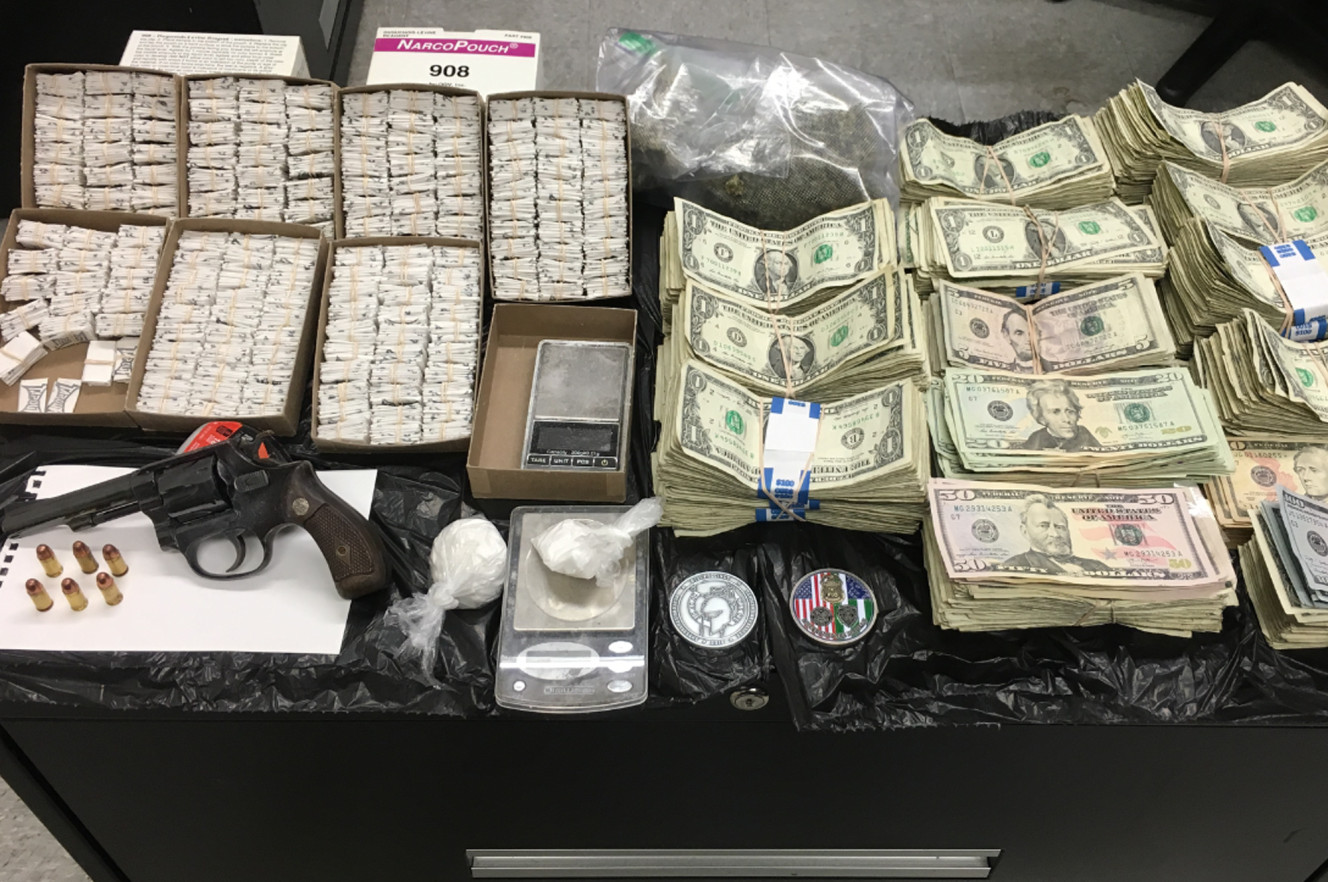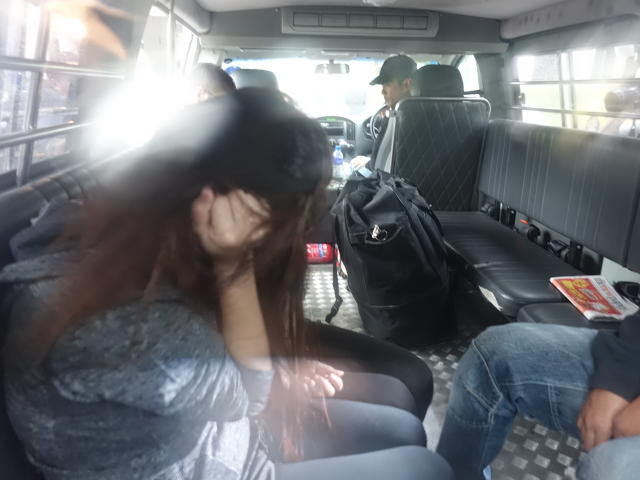Singapore’s Sex Industry Is Roaring – Licensed Brothels and ‘Sugar Babies’
By
thecoverage
Posted on December 30, 2017
Most nights, Lisa Jaafar heads to the Singapore red-light district of Geylang, and stands in the streets waiting for men to buy her services – S$50 (US$37) for 30 minutes of her time. Five years ago, when business was brisk, she could earn more than S$200 in about five hours, then head home to her two children.
Working a five-day week, she would make about S$4,000 a month, tax free. But now, she says, there are fewer clients on the streets. It’s probably not a reflection of the city state’s economic performance, however. The signs are that the sex industry in clean, green Singapore – where prostitution is legal – is as vibrant as ever. That’s despite the fact most activities associated with the world’s oldest profession are outlawed.
“Owning a brothel, pimping, online advertising of sex work, recruiting a woman, all are illegal,” says Vanessa Ho, director of sex worker advocacy group Project X. Soliciting prostitution in public places is also illegal in the Lion City.
That doesn’t stop such activities from taking place. Freelancers like Jaafar solicit on the streets, advertise their services online, and work under the cover of escort agencies. Then there’s Orchard Towers, in the middle of Singapore’s busy shopping district, housing bars and clubs frequented largely by Western visitors and sex workers. The entertainment complex is cheekily known as the “Four Floors of Whores”.
On the sex-themed website Sammy Boy Forum, Sgbabes Escorts advertises the services of Singaporean women. Alicia, a Singaporean Chinese purported to be 20, for example, is a “sweet and lovely student”. She weighs 45kg, is 1.62 metres tall, has a fair complexion, and costs S$650 a night – room not included. Alicia will do a house call for an additional S$50, but if a client finds her lacking on sight, he can reject her within five minutes, and pay a fee of S$50.
MUST READ Penis Whitening Procedure In Thailand Stirs Up Social Media Leaving Netizens Baffled
Assuming she works five days a week – and is booked up each night – Alicia is raking in about S$13,000 a month.
Ho says the sums prostitutes charge for sex services in Singapore vary widely, depending on where the woman plies her trade. “It can be as low as S$10 for a three-minute h*** job, up to S$1,000 for a massage with sex,” she says.
Scarlet, a 21-year-old student who became a “sugar baby” three years ago, explains the legalities and realities of prostitution. “If the sex worker isn’t attached to an agency, 100 per cent of the money goes to her,” she says. “However, if the lady is attached to an agency, the agency’s cut can range from 20 per cent to 70 per cent. But even as an independent worker, a good amount of my earnings is spent on advertising.”
Although Singapore does not stick too closely to the letter of the law, there are crackdowns. In May, 32-year-old Roderic Chen Hao Ren was sentenced to two years in jail and fined S$83,000 for operating a “virtual brothel” – a website advertising the sexual services of women at rates ranging from S$450 to S$600 an hour. He reportedly took 40 per cent of the women’s earnings.
Last year, Quek Choon Leong, 34, was jailed for 33 months for running a vice ring of 32 prostitutes, supported by his wife and 10 other staff.
In another indication of how the government is trying to keep a lid on illegal activity, the Ministry of Home Affairs said last month it had recorded a 40 per cent rise in the number of unlicensed massage parlours in Singapore between 2013 and 2016. These establishments, the ministry said, are often a front for vice activities.
MUST READ You Can Now Direct Hire 'Maid' Online Without Going Thru Agents and Save Up to RM14,000!
Its findings prompted the introduction of a new Massage Establishment Bill to clamp down harder on operators, increasing fines tenfold to S$10,000, and introducing prison sentences of up to two years. The bill just has had its first reading.
In an attempt to regulate the sex trade, Singapore allows licensed brothels to operate in designated areas. The licensing process, controlled by the police, is murky and the number of establishments is not made public.
Ho describes the practice as part of the police’s “ring fencing” tactic for keeping prostitution in check. “Trying to eradicate vice is always a futile effort,” she says. “It is more important to allow zones for such activities.”
She estimates the number of licensed brothels at between 80 and 90, based on listings on the Sammy Boy website, where clients share prices and rate the women’s services.
Women working these brothels are also required to hold a licence, issued by police. They are given a yellow card bearing their name and photo, and results of the regular check-ups they are required to have, for HIV and other sexually transmitted diseases.
The licensing of brothels is controversial because they operate in so-called designated red-light areas, where the law against pimping is not enforced, critics say. (These areas include the Geylang district, Keong Saik Road, Flanders Square and Desker Road.)
They argue that the brothels operate counter to the Women’s Charter, an act passed in Singapore in 1961 that prohibits knowingly living “wholly or in part on the earnings of the prostitution of another person”, and carries a prison sentence of up to five years and a fine not exceeding S$10,000.
MUST READ Zouk Soon to Open in Genting Highlands 2018 for all M'sia Clubbing Lovers!
“It is not just a grey area. It flies in the face of the rule of law,” Ho says.
There is clearly a demand for prostitutes in Singapore, Ho says, and women keep coming to the city from nearby countries such as Thailand, Vietnam, Indonesia and China.
Project X says there are many informal sex workers who work only occasionally, making it difficult to estimate the number. Two years ago, police arrested more than 5,000 unlicensed sex workers – mostly foreign women visiting on tourist visas.
Lainez says many are poorly educated with low-paying jobs back home. They came to Singapore for sex work to earn a higher income.
Singaporean Jaafar falls into the same category. She failed to complete the Primary School Leaving Examination and has limited job options.
“Postnatal and body therapist, telemarketing, factory worker, cashier, stall assistant,” she says when asked about her previous jobs. She entered the sex trade 12 years ago when she needed to support her children after getting divorced.
“It is clearly not easy work, but they are caught in a very difficult place,” says Nicholas Harrigan, a sociologist from the Singapore Management University. “I would think the ethical thing to do is to look at how we can make their work safer and less precarious.”
They should be able to ply their trade safely, without harassment, and with dignity, Harrigan says.
After all, says Jaafar: “I am not just a prostitute. I’m actually a professional entertainer for the men in Singapore.”
Source :
South China Morning Post

















